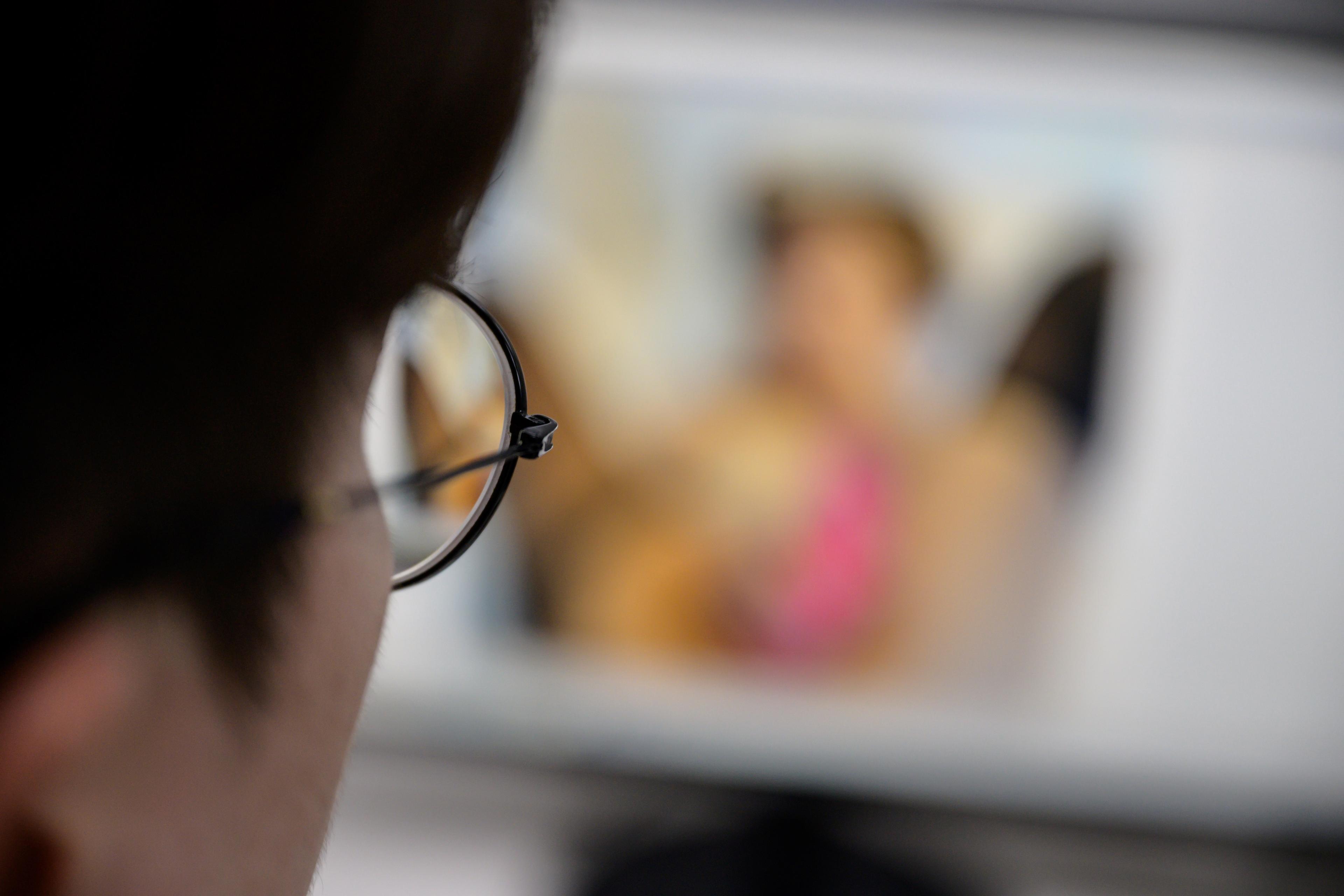In 2003, the musical comedy Avenue Q premiered in New York. Among its many bold themes was an entire song, largely sung by a puppet, called ‘The Internet Is for Porn’. Of course, it’s not true that the internet is exclusively for porn, but the puppet had a point: pornography is certainly popular online. In 2019, users visited Pornhub – one of the world’s most popular websites of any kind – more than 42 billion times, viewing more than 5.8 billion hours of videos and transferring more than 6 billion gigabytes of data. And that’s just one website, among thousands.
When I write about pornography, I am referring to sexually explicit films, video clips or pictures featuring nudity or sexual acts, which intend to sexually arouse the viewer. Academic studies confirm that watching porn is indeed a popular activity, particularly – perhaps unsurprisingly – in developed nations with high-speed internet access. For example, a 2014 study in the United States found that 46 per cent of men and 16 per cent of women between the ages of 18 and 39 had viewed pornography in the preceding week.
People watch pornography for a simple reason: it makes them feel good. In the vast majority of cases, people do it to enhance masturbation. There are other motivations – to temporarily escape emotional problems, to enhance sex with a partner by viewing it together, or to explore sexual fetishes, for example – but even in these cases, the goal is still most often pleasure.
At the same time, people often feel conflicted about watching porn. Perhaps this is no surprise, considering the messaging from activists, religious leaders, politicians, bloggers and some academics. There are those who claim that pornography is a threat to ‘marriage and family’, devaluing monogamy and child-rearing; others have pointed to pornography use as a cause of sexual violence. By January 2021, there were 17 states in the US that had drafted or passed some sort of legislation describing pornography use as a ‘public health crisis’ (even though it meets none of the criteria for this term). At the heart of this messaging is the notion that pornography use is inherently harmful to individuals, relationships and society at large. There certainly are some concerns about porn – particularly regarding the exploitation of women, children and teenagers, and how it might impact relationships – but the messaging that all porn use is harmful belies a more complicated, less alarming reality.
Part of the confusion stems from the popular notion that porn is addictive. The basic argument is that pornography is an unnatural stimulus that didn’t exist during most of human history, and that our brains are therefore not equipped to handle it. But this argument is flawed. We also didn’t evolve to drive cars, or live in houses, or use electricity, but no one claims that those modern technologies are addictive. And just because watching porn releases pleasure-inducing neurotransmitters or changes the structure of our brain, that also doesn’t mean it’s addictive. People release these chemicals in response to a wide range of activities, from learning new skills to watching an entertaining television show, and our brains are constantly changing, always adapting in response to what we’re doing and the environment we’re in.
To say something is addictive is a bold claim. Addiction is not simply doing a behaviour more than you want to. Addiction means that the pursuit of the behaviour has become so prevalent in a person’s life that it’s causing severe problems in almost all other areas of functioning. People with addictions see their relationships, health and careers fall apart as they relentlessly seek out the substance or behaviour. The vast majority of people who watch porn don’t remotely meet this definition.
Nonetheless, hundreds of studies have shown that some people report being addicted to pornography. They say that they use pornography more than they want to, have problems stopping or reducing their use of pornography, and/or feel as if their use of pornography is a problem. You might think that this sounds reasonable: some people really do use pornography very frequently and the behaviour interferes with other aspects of their life. But here’s the surprising thing: the people who report feeling addicted to porn aren’t always the people who watch a lot of it.
There is considerable evidence that some people watch a great deal of pornography and yet say that they don’t feel addicted to it. Equally, some people use pornography rarely but do feel addicted to it – they feel that the behaviour is out of their control. This tells us that frequency of use is not the only factor in determining whether someone thinks they have a problem with porn. If frequency alone isn’t sufficient, then what makes so many people feel that they are addicted?
Attitude toward pornography seems to be the key factor here. One study in the US found that, when people who are devoutly religious use pornography, they’re much more likely than their non-religious counterparts to describe themselves as addicted. Similarly, people who think that pornography is morally wrong but continue to use it anyway are more likely to report being addicted, compared with people who don’t think porn is wrong. In short, how someone thinks about pornography in general is incredibly important in deciding whether or not they think they’re addicted to it.
My colleagues and I have written a great deal about this notion of ‘moral incongruence’ in pornography use – the discrepancy between people’s beliefs about pornography and their own pornography use. What we generally find is that, for people who use pornography despite finding it morally objectionable, that incongruence between belief and behaviour seems to be driving self-reports of addiction. People report feeling addicted because they feel as if their behaviour is out of sync with their values.
The question, then, is what should people do if they’re unhappy about their pornography use?
For those whose pornography use really is excessive, out of control, and causing problems in other areas of their life, help is available. There is increasing recognition in the mental health community of problems related to compulsive and excessive sexual behaviours, including watching porn. A number of recent and ongoing studies do suggest that people can learn to reduce their pornography use via established psychotherapy methods such as cognitive behavioural therapy or acceptance and commitment therapy.
For those who aren’t really watching porn too often, they just feel like they are, the above approaches can still be useful. But it might also be helpful to try to frame their pornography use in a different way. Repeated difficulties or even an inability to change a behaviour don’t necessarily imply an addiction, even when we feel quite distressed about the behaviour. What those difficulties do imply is that we’re human, and that struggles to reconcile our desires, drives, values and morals are quintessential parts of the human experience.
When it comes to pornography, these struggles can be difficult – feeling unhappy about pornography use can lead to relationship problems, feelings of anxiety or depression, and difficulties in one’s religious and spiritual life. Yet calling this behaviour an addiction doesn’t help people reconcile these struggles, and it likely blurs the lines between people with genuine out-of-control behaviours and people who simply feel guilty or ashamed that their behaviours don’t match their morals. If someone believes that pornography use is morally wrong and believes that they shouldn’t view it, then attempting to reduce or stop viewing pornography altogether is a reasonable goal. But falling short of that goal doesn’t make it an addiction.
For some people, reducing or stopping pornography use might always be an ideal, but such ideals shouldn’t come at the expense of wellbeing every time the ideal isn’t met. What might be more helpful, and kinder, is for such people to consider the morals and values that are causing them distress, and consider whether or not that distress is actually helping them get closer to those values. If not, they might be better off reducing that distress by learning to accept their own flaws and shortcomings. Then, they can work toward the values that actually matter – this will help someone much more than calling themselves ‘addicted’. Lastly, some individuals might reconsider whether watching pornography is a ‘flaw’ at all, or whether it might be – for many people at least – a source of simple pleasure in a complicated life.








